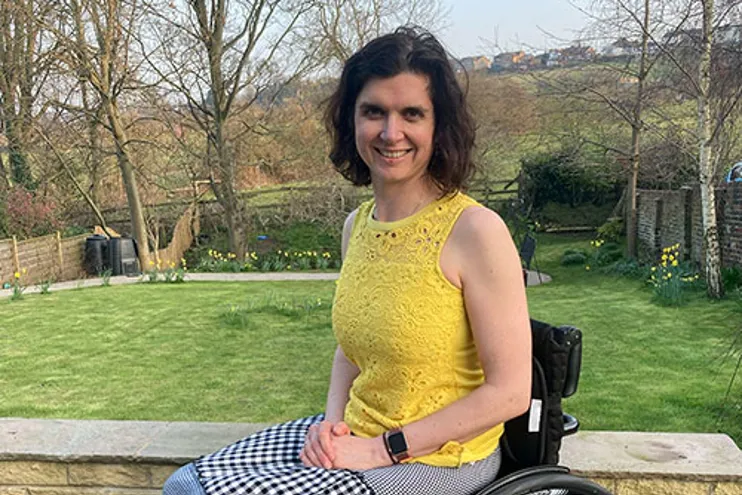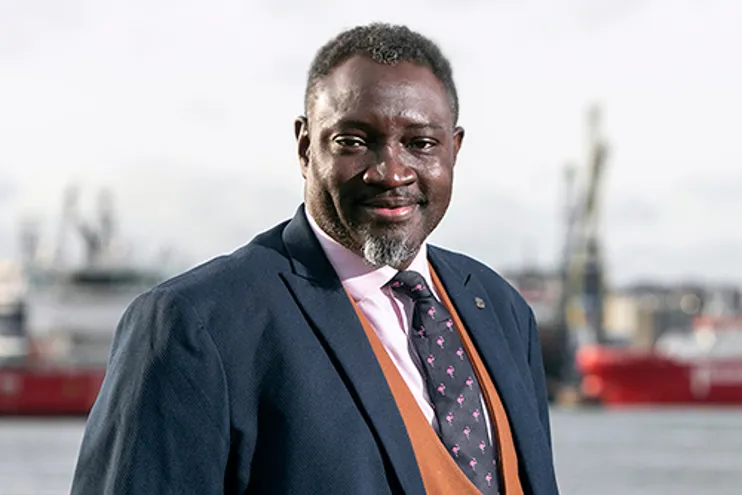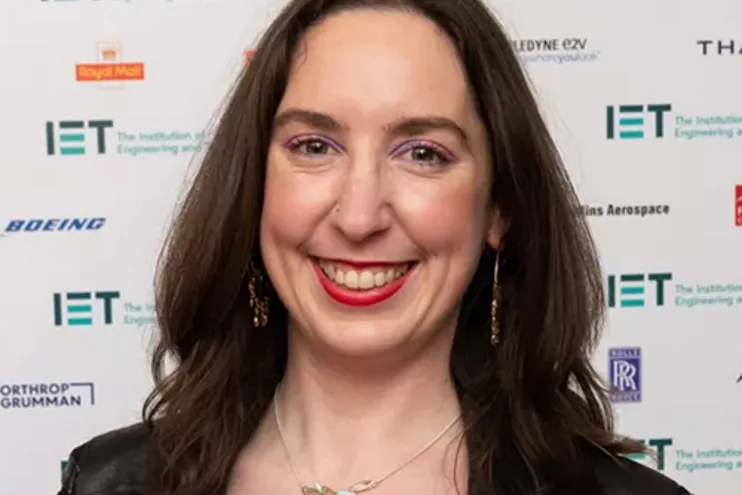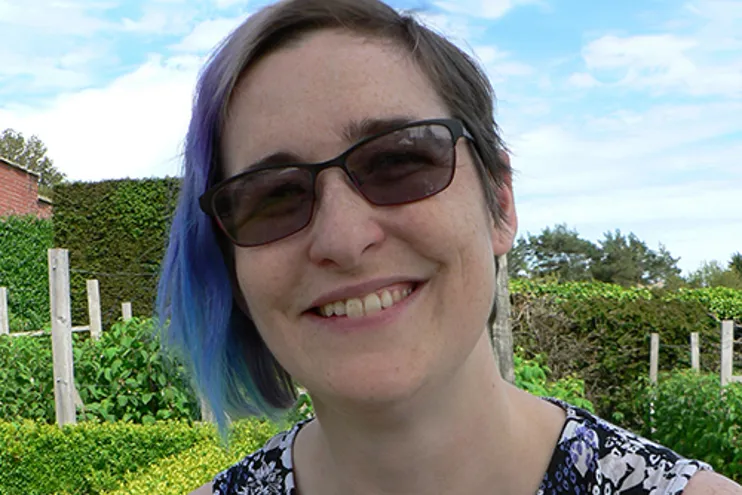Share your tip today
We’ll collate the best advice and share it here, as well as across social media – to help guide more inclusive thinking and practises across engineering and technology.
Why is inclusive thinking important?
Inclusion is critical for success yet only 16.5% of the engineering workforce are women (Engineering UK, 2022) and only 3 in 10 engineering organisations have taken action to improve the diversity of their engineering and technical workforce (IET Skills and Demand in Industry Survey, 2021).
Inclusion is vital to achieving true equality and diversity of thought, but sometimes knowing where to start can be daunting – this was echoed by research we recently conducted where some people told us they were unsure what they could do to improve inclusion in engineering and technology.
Embedding inclusion in your workplace may seem like a huge task, but sometimes small changes can make big impacts. That’s why we’ve launched this campaign - to make embedding inclusion as easy as possible.
Share your tips, insights and hacks via our form above, and we will #PassItOn
You may be unsure where to begin on the journey of being more inclusive – so we want to make it as easy as possible.
Remember – it doesn’t have to be one big thing; what may appear a small change to you can really make a difference.
Need inspiration?

Inclusion tip #1
“If you’re in a conversation with or asked a question by, a wheelchair user - reply to them! Include them in the conversation and make eye contact.”
Katy Deacon
IET Trustee and Chair of our Equality, Diversity and Inclusion (EDI) working party

Inclusion tip #2
“As a leader, it’s vital to create a culture of openness and active listening - taking opportunities to respond to questions and ideas from colleagues, and seeking input from those less likely to contribute in formal meetings.”
Ed Almond
IET Chief Executive and Secretary

Inclusion tip #3
“Ensure continuity. Organisations should price in succession planning whenever a Head of Diversity is appointed. I’ve seen ambitious diversity programmes stall when an individual leaves their post.”
Dr Ollie Folayan MBE
Co-Founder of AFBE-UK, and Head of Process and Safety Engineering at Optimus Plus

Inclusion tip #4
“Avoid consciously making early assumptions about people you meet, especially those who do not look like you.”
Sir Julian Young KBE
Former IET President

Inclusion tip #5
“Before accepting an opportunity, stop and consider if there is someone more suited who is often overlooked.”
Dr Ciara McGrath
Lecturer in Aerospace Systems at the University of Manchester, and YWE winner 2021

Inclusion tip #6
“Wherever possible, offer options that anyone can choose between, rather than always expecting disabled or neurodivergent people to come and ask for accommodations.”
Dr Rachel Dugdale
Founder of Complexical Ltd
View more inclusion tips by clicking on the relevant topic area
Inclusive thinking tips to support disability and neurodiversity
Disability and neurodiversity - expand to view the insights
Inclusion tip #1 - Katy Deacon
If you’re in a conversation with or asked a question by, a wheelchair user - reply to them! Include them in the conversation and make eye contact.
Katy Deacon
IET Trustee and Chair of our Equality, Diversity and Inclusion (EDI) working party
Inclusion tip #6 - Dr Rachel Dugdale
Wherever possible, offer options that anyone can choose between, rather than always expecting disabled or neurodivergent people to come and ask for accommodations.
Dr Rachel Dugdale
Founder of Complexical Ltd
Inclusion tip #8 - Paul Strick
I’ve started to represent the ‘Neurodiversity Community’ within my company’s Welfare group. I’m trying to raise awareness and to make improvements across the company for staff and also customers.
Paul Strick
Air Traffic Engineering Manager
Inclusion tip #13 - Chloe Sarson
I hosted a neurodiversity awareness session within my department, supported by our EDI and Disability Inclusion Network leads. I helped to dispel some myths, but what was most rewarding was creating a discussion among colleagues about their own experiences.
Chloe Sarson
IET Technical Conference Producer
Inclusion tip #19 - Peter Raponi
If I’m working with Neurodiverse colleagues I adjust myself to make them comfortable. I worked with a colleague who preferred to only manage 3 tasks at a time due to his autism; so I kept providing 3 tasks at a time. One day the person came back to me with feedback: "I had the most enjoyable time of my life working for you."
Peter Raponi
Programme Manager
Inclusion tip #25 - Neeha
Be inclusive to disabled/neurodivergent people by asking them if any adjustments should be made for them or if there is anything they think you should know.
Neeha
Sixth Form at The Coopers’ Company and Coborn School
Inclusion tip #33 - Ramkrishna
Neurodiversity inclusion in workplaces is lacking. Industry needs to carve out requirements and areas so neurodiverse people can thrive, and encourage diversity in all forms into the workforce.
Ramkrishna
Lead Engineer at Worley
Gender inclusion
Gender inclusion - expand to view the insights
Inclusion tip #17 - Yen Le
Adding your pronouns to your email signature or Teams/Zoom name, even if you’re cisgender (a person whose gender identity corresponds with the sex registered for them at birth)! It’s such a small thing, but helps to normalise pronouns.
Yen Le
The IET
Inclusion tip #22 - Lidia
Do not be afraid to ask how to pronounce someone's name and to take your time to learn how to pronounce it correctly.
Lidia
EC&I Design Engineer
Inclusion tip #23 - Anonymous
Highlight and advocate for women in engineering/BAME engineering events and associations to celebrate diversity.
Anonymous
Inclusion tip #27 - Anonymous
As a female engineer for over 30 years, I'd say work hard, be good at what you do and don't expect an easy life. Be prepared to fight to be heard and to be accepted.
Anonymous
Inclusion tip #32 - Andy
All our engineering documentation has been rewritten to use non-gender-specific language and remove archaic engineering terms and phrases.
Andy
National Nuclear Laboratory
Inclusion tip # 48 - Anonymous
Ensure same-sex and gender neutral toilets and changing rooms are available to accommodate all faiths and lived experiences.
Anonymous
Inclusion tip # 54 - Anonymous
Remember that diversity characteristics aren’t mutually exclusive. A woman, a person who is divorced, a person who has a visual impairment, a person who has mental health difficulties, a person who grew up in care - these can all be the same person (and all describe Marilyn Monroe!)
Anonymous
Workplace culture
Workplace culture - expand to view the insights
Inclusion tip #2 - Ed Almond
As a leader, it’s vital to create a culture of openness and active listening - taking opportunities to respond to questions and ideas from colleagues, and seeking input from those less likely to contribute in formal meetings.
Ed Almond
IET Chief Executive and Secretary
Inclusion tip #3 - Dr Ollie Folayan MBE
Ensure continuity. Organisations should price in succession planning whenever a Head of Diversity is appointed. I’ve seen ambitious diversity programmes stall when an individual leaves their post.
Dr Ollie Folayan MBE
Co-Founder of AFBE-UK, and Head of Process and Safety Engineering at Optimus Plus
Inclusion tip #7 - Jim Smith
In a meeting (virtual or in-person), wait a moment and ensure everyone’s voices are heard - not just the loudest or most confident people, and if you find yourself speaking a lot, let others go first.
Jim Smith
IET Volunteer
Inclusion tip #10 - Miles Cooksey
Embrace technology to help make it easy for everyone to thrive. Accessibility is built into every Microsoft application now - such as closed-captions and call transcripts in Teams, and the ability to add descriptive information to images in PowerPoint for screen-reading software. There are also plenty of accessibility features specific to your device - check out tips on YouTube or via the manufacturer's website.
Miles Cooksey
IET IT Project Manager
Inclusion tip #11 - Dr Clara Barker
Being inclusive doesn’t necessarily mean making big changes or statements. It is so often the little things that make a workplace feel actually inclusive, be it not assuming a partner’s gender, respecting a person’s pronouns, religious holidays, etc.
Dr Clara Barker
Research Fellow & PDRA at Oxford University, and Dean for Equality and Diversity at Linacre College
Inclusion tip #15 - Wayne Steel
With the limited diversity of the workforce you have, offer to visit local high schools, and work with their STEM teams. Embed the thought of becoming an engineer into the young minds of all the children, whatever their background.
Wayne Steel
Network Engineering Manager at National Grid Electricity Transmission
Inclusion tip #20 - Jenny McLaughlin
When creating assets, technology, or processes use a wide demographic to test that you are not creating barriers or discriminating who will be safe. For example, don't rely on colour or sound as the only means of communicating risk.
Good design = designing for human diversity
Creating psychological safety to say this was not designed for me = equitable safety.
Jenny McLaughlin
Project Manager at Heathrow Airport
Inclusion tip #21 - Daniel
When I design content, be it socials or documentation, I'll check the following:
- Alt text for images
- Colour contrast
- Clear and concise language
- If it's a video, provide closed captioning and transcripts. (I may not be the best person to audio describe a scene but working on it)
- Having awareness
Daniel
Co-Founder and CTO of Wangi Lai PLT
Inclusion tip #29 - Will
Saying thank you or recognising someone's contribution can make a huge difference to their day, and to how they feel about work.
Will
Principal Engineer - Obsolescence at BAE Systems
Inclusion tip #30 - Mufaddal Ali
Ensure that your meeting rooms/office space have arrangements for accommodating wheelchair users or anyone differently abled.
Mufaddal Ali
DGM RTO & Business Process Improvement at K Electric
Inclusion tip #31 - Raymund Simangan
Foster a collaborative culture in the workplace. Build a rapport between your diverse team members; it's good to know not just each other's skills, but also interests outside of work.
Raymund Simangan
Commissioning Manager at SESC Project Management
Inclusion tip #35 - Beth
Set up a Shadow Board. This can be made of representatives from across your organisation, including young professionals, part-time workers, and people from a range of backgrounds and with varying levels of experience. This Board can provide feedback and insight into a Senior Executive Board and should mirror the Executive Board as much as possible. They can share their thoughts on new organisational initiatives and management decisions, and help you make more inclusive choices for your workforce.
Beth
Quality and DevOps Specialist at ROSEN
Inclusion tip #42 - Sami
In workshops and trainings, organisers need to ensure the activity is inclusive and all participants will be able to equally participate, otherwise it will actually have an opposite impact. I've attended workshops where the ice breaking activities were a Christmas quiz, sport focused quiz or activities requiring able-bodied participants, and some participants were silent during the activity - you can see this impacted their engagement.
Sami
Power Systems Engineer
Inclusion tip #43 - Martin Griffin
Ensure disabled or neurodivergent staff are not excluded from promotion or training opportunities because they cannot attain or be exposed to certain aspects due to a fixed rubric archaic criteria.
Martin Griffin, CEng, FIMMM, CGeol, EurGeol
Senior Engineer
Inclusion tip #49 - Paul Mahy-Rhodes
Be an active ally!
It’s great to arm yourself with the latest information to limit bias and focus on the groups that need more support. What use is it if you’re not active?
Where your company has networks, discussion forums and open sessions, attend and ask questions. Be interested. Be curious. Ask yourself the difficult questions and then role model a better version of yourself.
Paul Mahy-Rhodes
Benefits and Business Change Manager at NATS
Inclusion tip #50 - Anonymous
Embed inclusion as part of performance management for all staff, as this makes it clear that an inclusive culture and inclusive engineering is everyone’s responsibility.
Anonymous
Inclusion tip #57 - Shreelakshmi
It boosts morale among teams when space is held for everyone equitably; actively, kindly and consciously follow best professional practices and strive to remove personal biases.
Shreelakshmi
IoT Consultant, Sama Tech
Inclusive hiring
Inclusive hiring - expand to view the insights
Inclusion tip #9 - Mark Martin MBE
By not embracing diversity, the tech industry may miss out on talented individuals from underrepresented groups who may choose to pursue opportunities elsewhere. A lack of diversity can lead to product failures or missed opportunities. A homogenous team may have limited perspectives and experiences.
Mark Martin MBE
Assistant Professor in Computer Science & Co-Founder at UKBlackTech
Inclusion tip #26 - David
When hiring, try getting someone to remove things that identify a person's gender, religion, birthplace, etc to avoid inadvertent bias during the candidate review stage.
David
Inclusion tip #28 - Robert
Write simpler job specifications and minimise 'must have' requirements, read CVs carefully, and get the best candidates in for face-to-face interviews and put them at ease - a meeting not an examination!
Robert
Principal Engineer at Callaghan Innovation
Inclusion tip #44 - David Bryson
An organisation needs to properly resource the transformation needed to achieve a more diverse, inclusive and equitable workplace. The process changes needed to counter unconscious bias, at individual and organisational level, will only be achieved through a structured approach to change - tackling organisational practices as well as the hearts and minds of the people. Therefore, the greatest impact leaders can have is to fully resource and fully support that change in everything they do; leading by example.
David Bryson
Ex COO and Ex Board Sponsor for DEI at a Major European Utility Company
Inclusion tip #46 - Sam
For recruitment, think about advertising and showcasing your company or any vacancies in different places. Spread over varied socio-economic areas or neurodiverse specialist schools for example.
Sam
Senior Engineer at Urenco
General
General - expand to view the insights
Inclusion tip #4 - Sir Julian Young KBE
Avoid consciously making early assumptions about people you meet, especially those who do not look like you.
Sir Julian Young KBE
Former IET President
Inclusion tip #5 - Dr Ciara McGrath
Before accepting an opportunity, stop and consider if there is someone more suited who is often overlooked.
Dr Ciara McGrath
Lecturer in Aerospace Systems at the University of Manchester, and YWE winner 2021
Inclusion tip #12 - Nike Folayan MBE
Each of us has some part of our identity which requires little attention to protect ourselves from danger and discrimination. This is our everyday privilege. Start learning what people who lack that everyday privilege encounter in your community, then use yours as a means of supporting them.
Nike Folayan MBE
Co-founder of AFBE-UK
Inclusion tip #14 - Glenn Atkins
We must actively seek out and embrace diversity, listen with an open mind and heart, and make room 'at the table' for all voices to be heard and valued. Just be a nice human being!
Glenn Atkins
IET Professional Registration Operations Manager
Inclusion tip #16 - Tamara Anderson
Challenge yourself - seek out people that are different to you. Don’t surround yourself with those who act, think and look like you.
Tamara Anderson
IET Group Manager - Events Production
Inclusion tip #18 - Tosha
Pronounce people’s names correctly. If you are struggling in pronouncing a name, stop and ask the person how to pronounce their name. This might seem like a small thing but it goes a long way in creating belonging and acknowledging someone’s being.
Tosha
Programme Director for Aerospace Engineering at the University of Leicester
Inclusion tip #24 - Chris
Think of everyone you meet as an equal - that is, equally entitled to reciprocal care, courtesy and consideration.
Chris
IET Volunteer
Inclusion tip #34 - Heather
Confidence can sometimes be a blocker to the most able people not stepping up, speaking up or applying for opportunities.
If you see someone do something great - let them know. If you see an opportunity that someone isn't taking - offer encouragement. If someone who is normally quiet speaks up - make sure you actively listen and acknowledge their contribution.
Heather
Network Planning Specialist at BT
Inclusion tip #45 - Samantha Hubbard
Don’t assume everyone will have the same opinions, background and culture as you. When arranging events be mindful to make them inclusive. For example, arranging Christmas activities may not appeal to all, so highlight other festivals and use the opportunity to educate yourself and others.
Samantha Hubbard
Inclusion tip # 47 - David Carlaccini
Empathy in inclusion is important.
Wearing someone else’s shoes is the best way to understand and to improve. Take the lead and do a little action to make a day for someone close to you.
David Carlaccini
Systems engineer at TotalEnergies UK
Inclusion tip # 51 - Anonymous
Pause to consider who benefits from and who might lose out due to a piece of engineering work. We can deliver more inclusive engineering by better understanding the full breadth of the community the work is serving, the varied needs of the community, and considering the potential unintended consequences of the work upfront.
Anonymous
Inclusion tip # 52 - Anonymous
Hold the belief that all ideas from all people have the potential to be good ones: make an ongoing commitment to, at the very least, make them heard.
Anonymous
Inclusion tip # 53 - Anonymous
Make a commitment to putting newly gained EDI knowledge into action and consolidate learning, building up inclusive habits over time.
Anonymous
Inclusion tip # 55 - Irene Moulitsas
As an academic, I have created more student group work opportunities during my computer lab sessions. We create groups in a randomised way - to avoid potential polarisation. This way, it makes it easier, even for the shier students on the course, to meet and work with other people.
With hindsight, this has worked very well in creating an inclusive learning and working environment.
Irene Moulitsas
Senior Lecturer in Scientific Computing at Cranfield University
Inclusion tip # 56 - Sophie Barr
Put subtitles on videos if not already included, e.g. monthly updates, town hall presentations, etc.
Sophie Barr
The IET
Inclusion tip # 58 - Rebecca Bolter
Offer things in various formats: we all digest information in different ways and at different paces. This approach helps 'reflectors' by allowing them to take the content away and process their thoughts, while also catering to visual learners by presenting key points, relevant images, and subtitles to enhance understanding.
Rebecca Bolter
Inclusion tip # 59 - Benjamin Obiri-Bonney
It's simple - show everyone respect.
Benjamin Obiri-Bonney
Planning and Performance Manager
Inclusion tip # 60 - Dr Ruth Brown-Shepherd
When someone you don't know enters a boardroom, professional event, or corporate building, keep an open mind and ask how you can assist them.
It's NOT right to assume:
- They look young, so they can’t be experienced enough.
- They’re too old to contribute creatively.
- They are from an ethnic minority, so they must have specific cultural preferences.
- They appear fine to you, so they can’t have a disability or long-term health condition.
- They’re a woman, so they must be there to make the tea!
- You know their gender identity.
This list is not exhaustive but highlights the importance of avoiding assumptions and being mindful in your communication from the outset of any professional relationship.
Dr Ruth Brown-Shepherd
Scientific Business Consultant and Entrepreneur
Submit your own inclusion tip
Share your advice on how to embed inclusion across engineering and technology.

